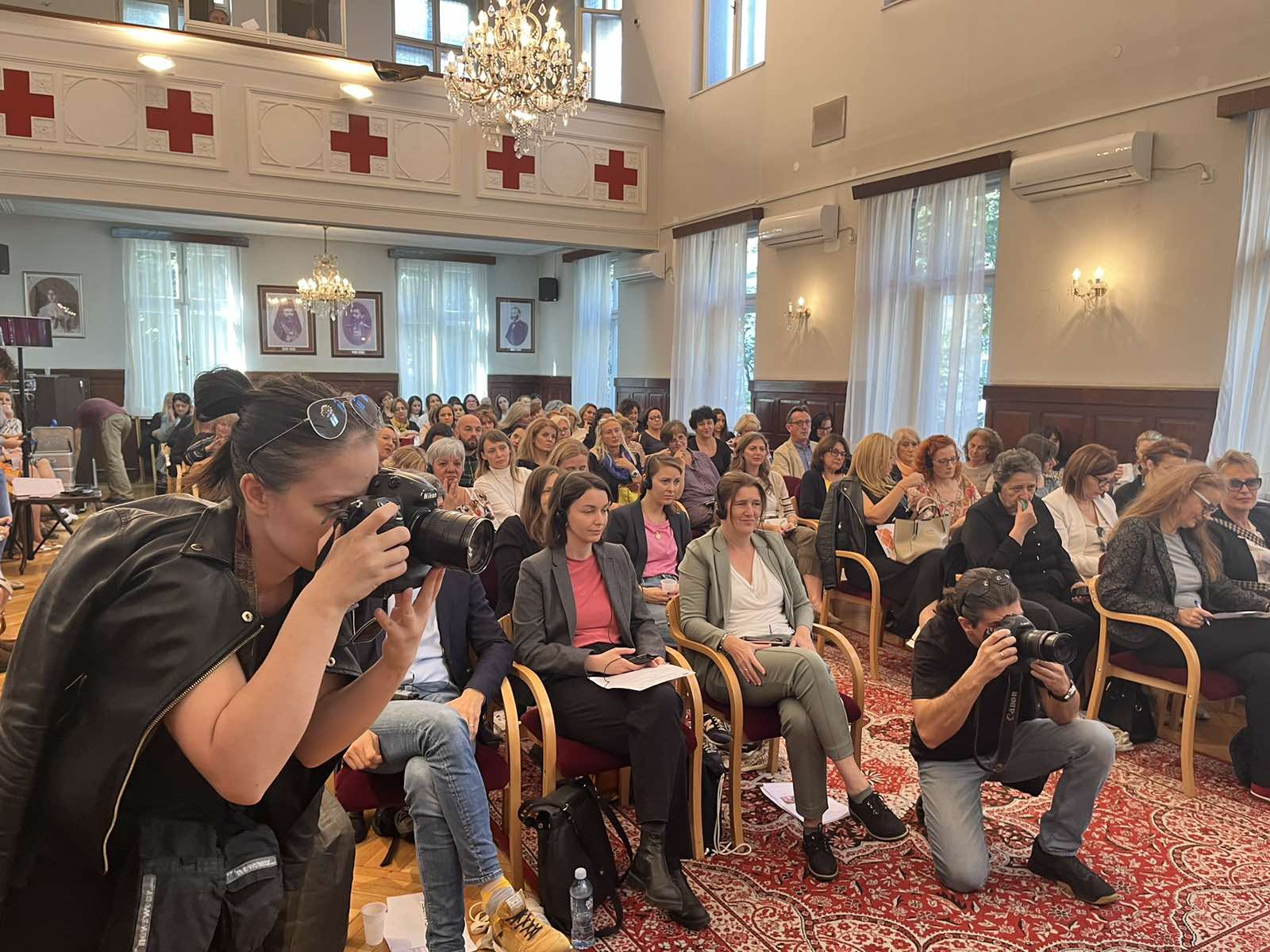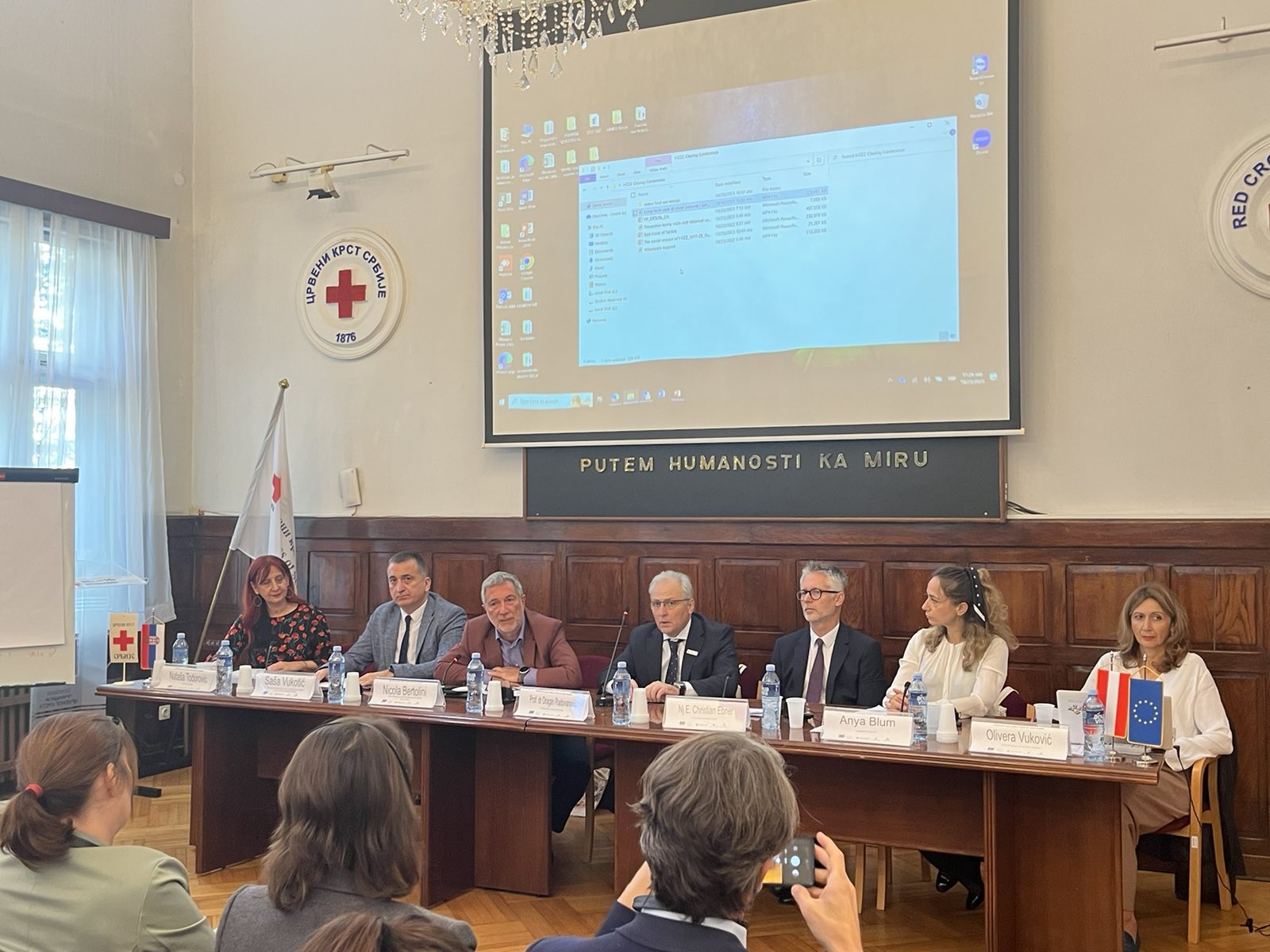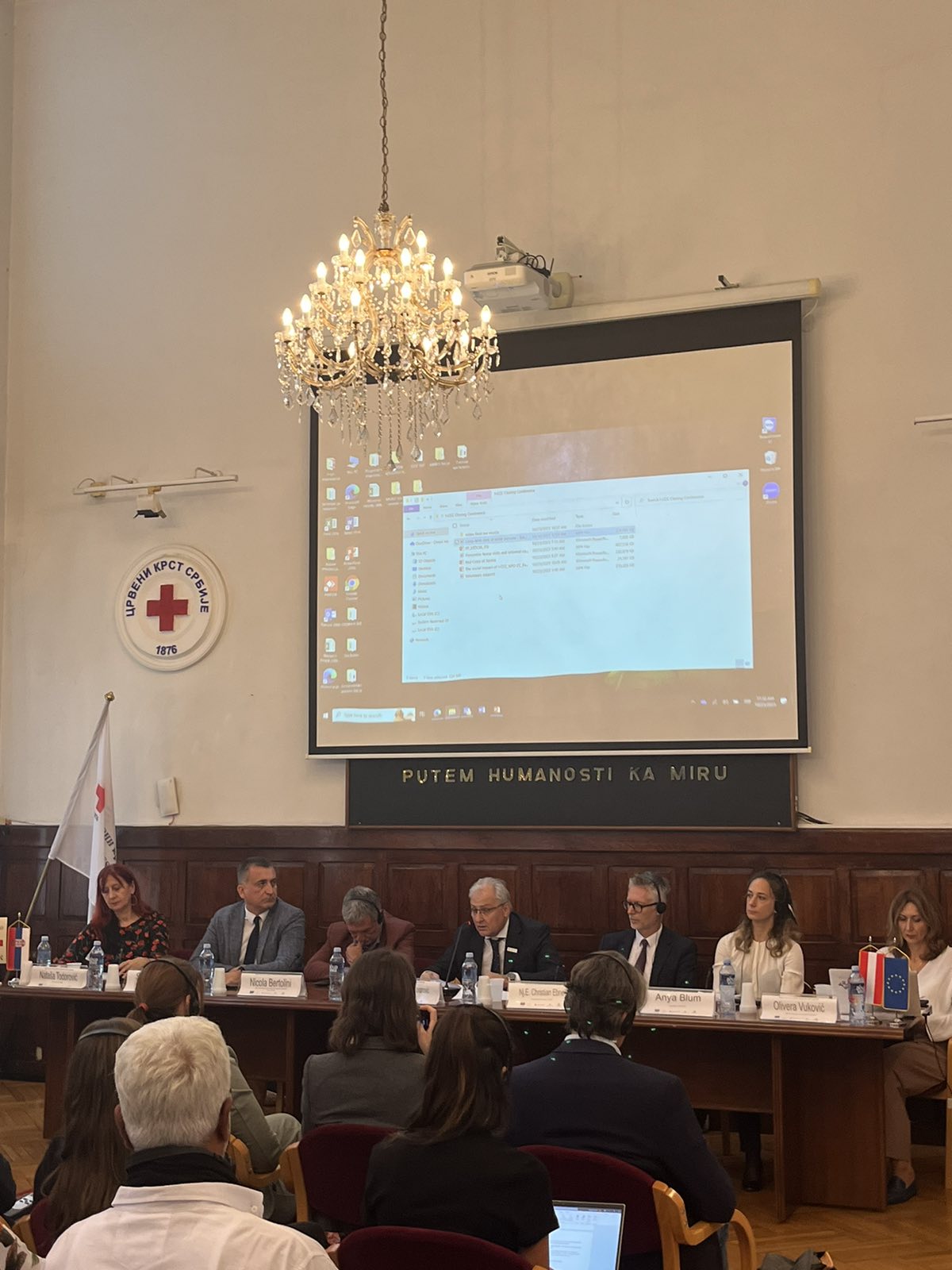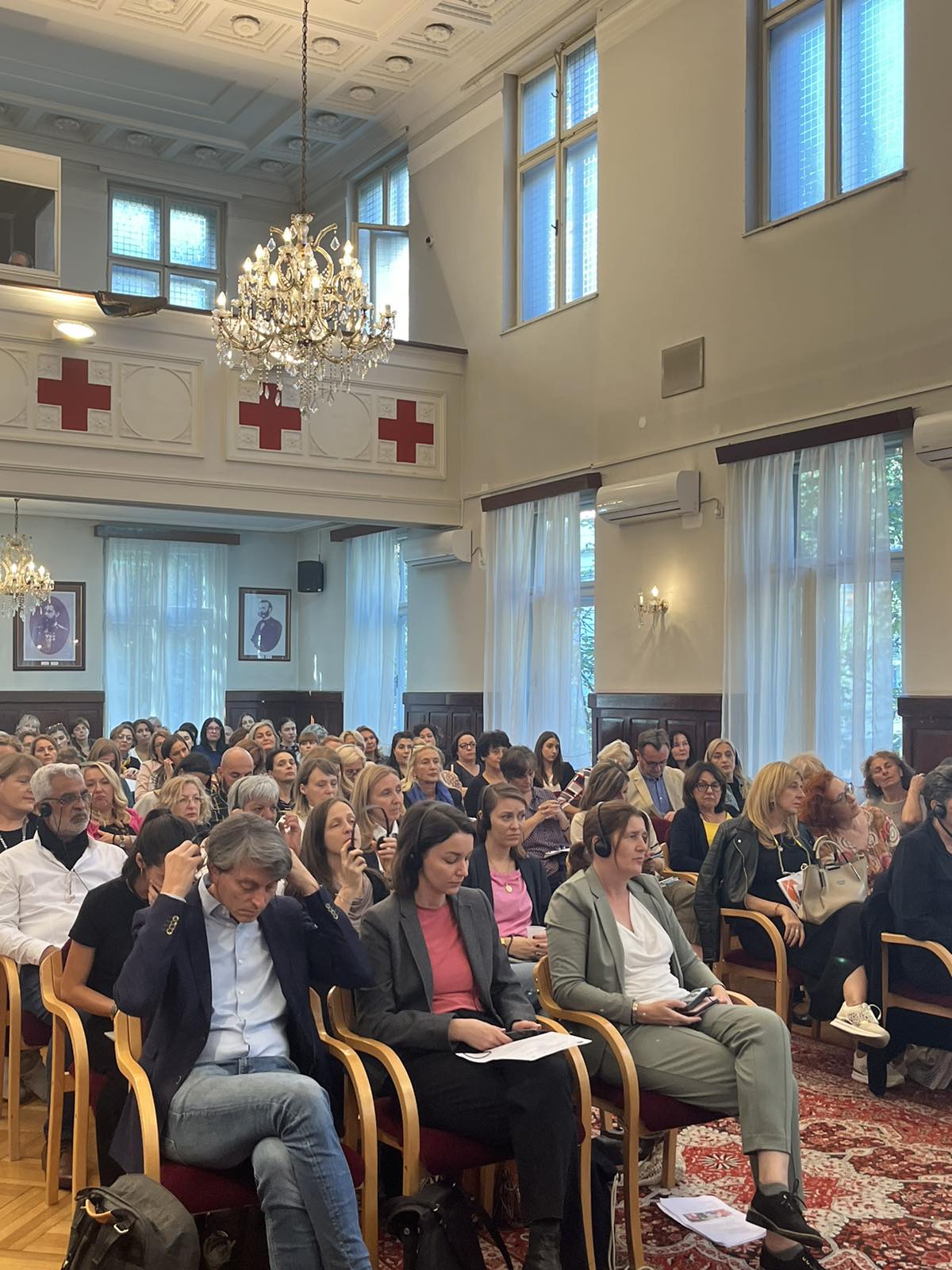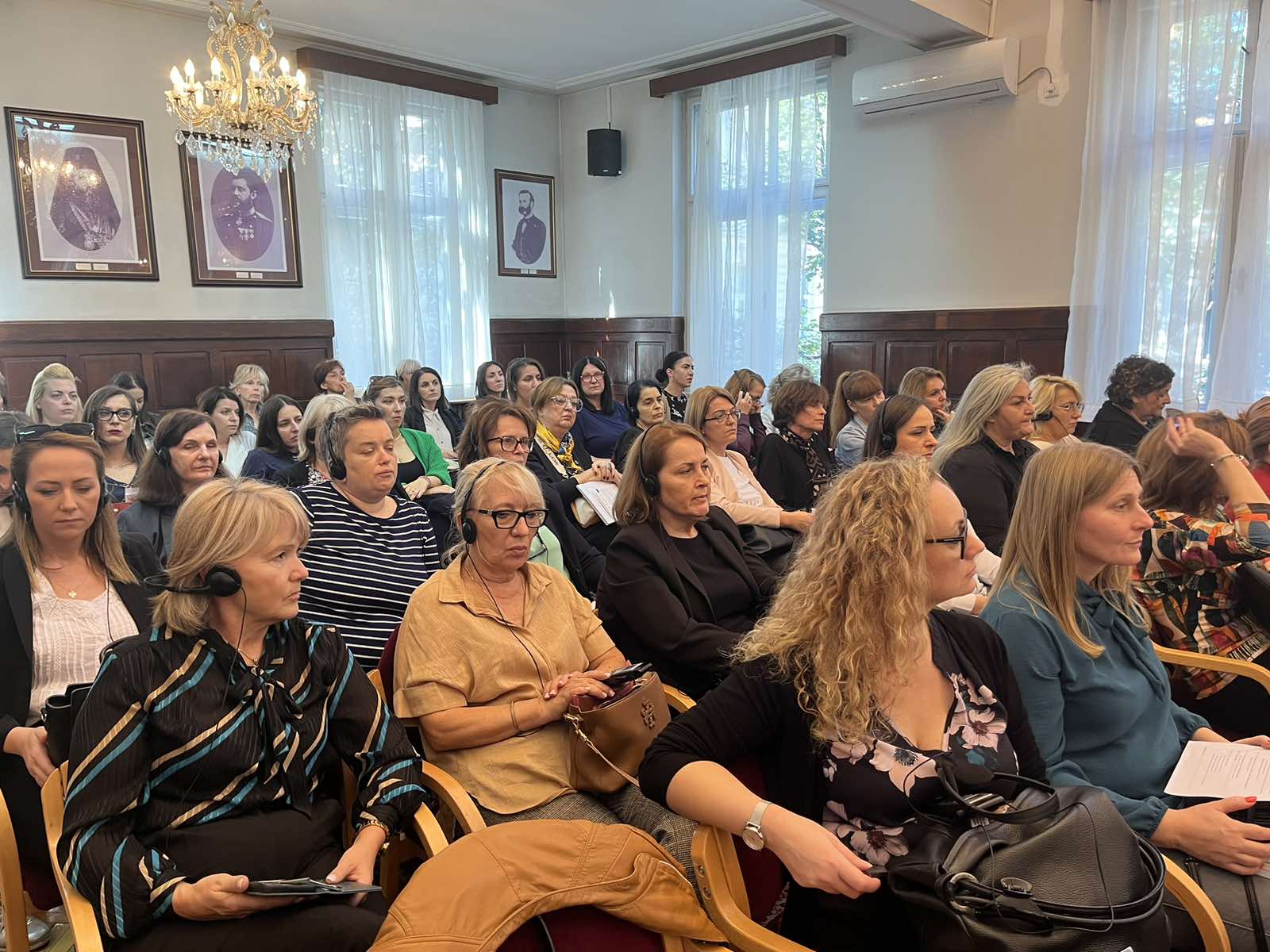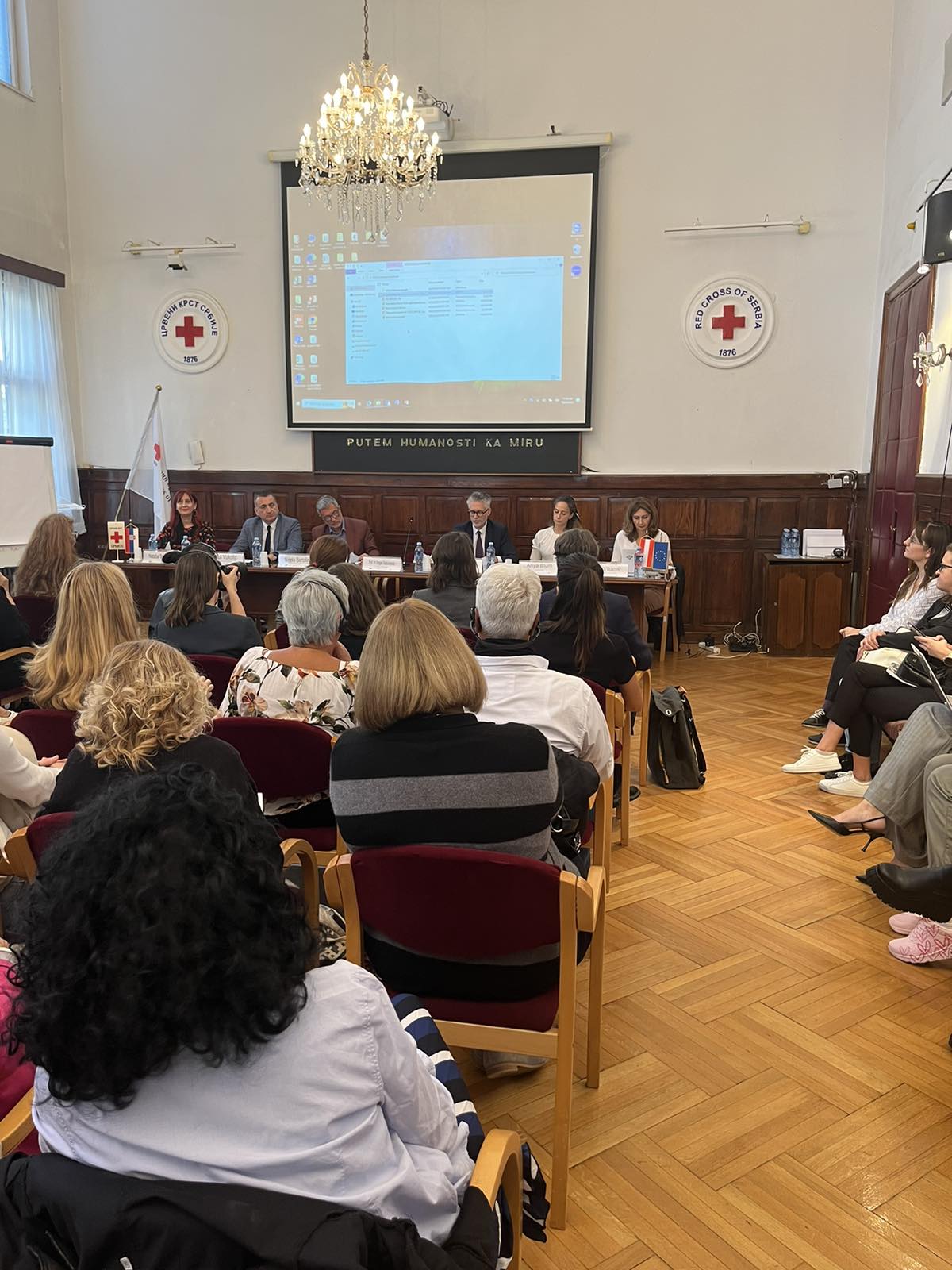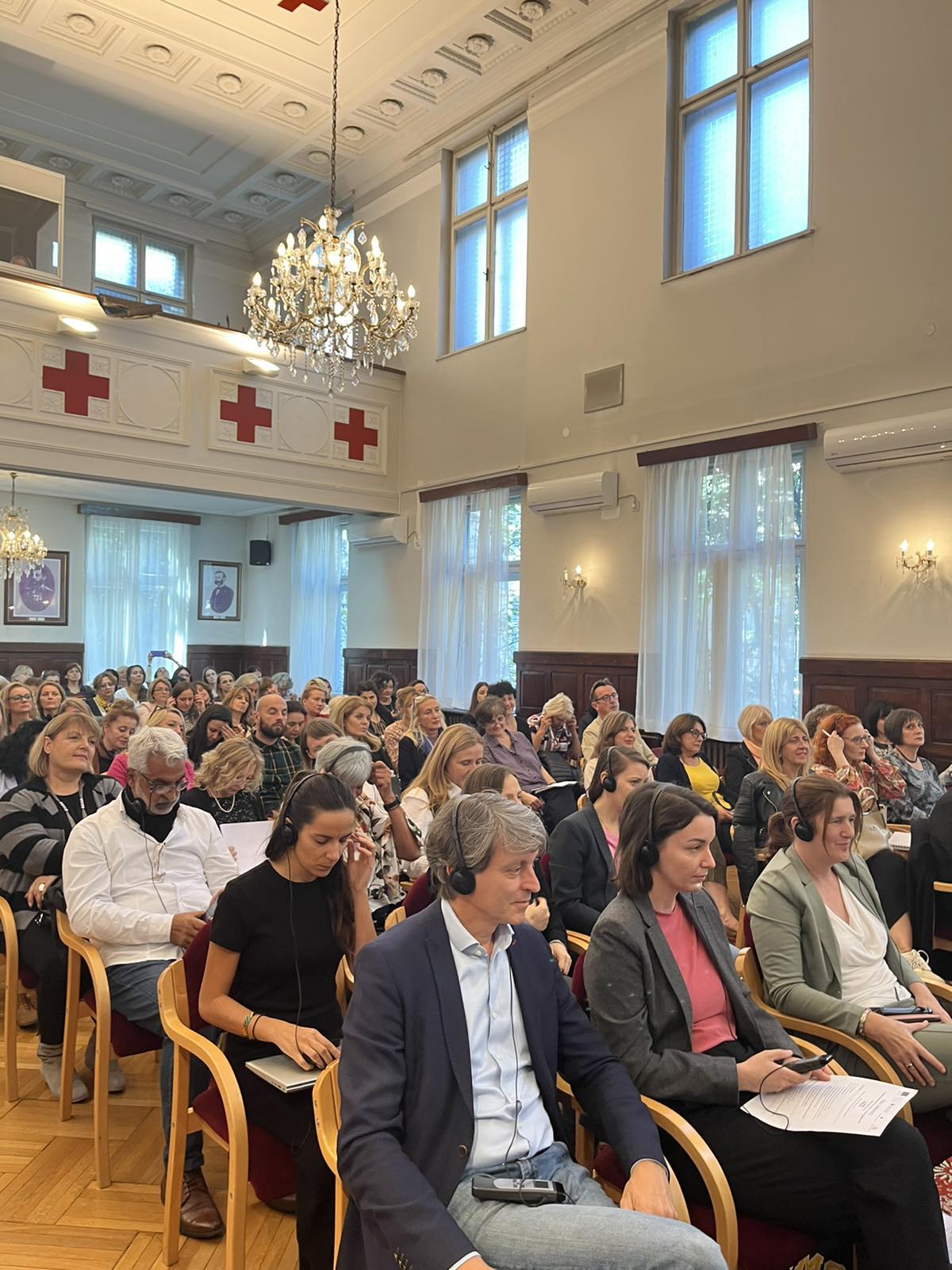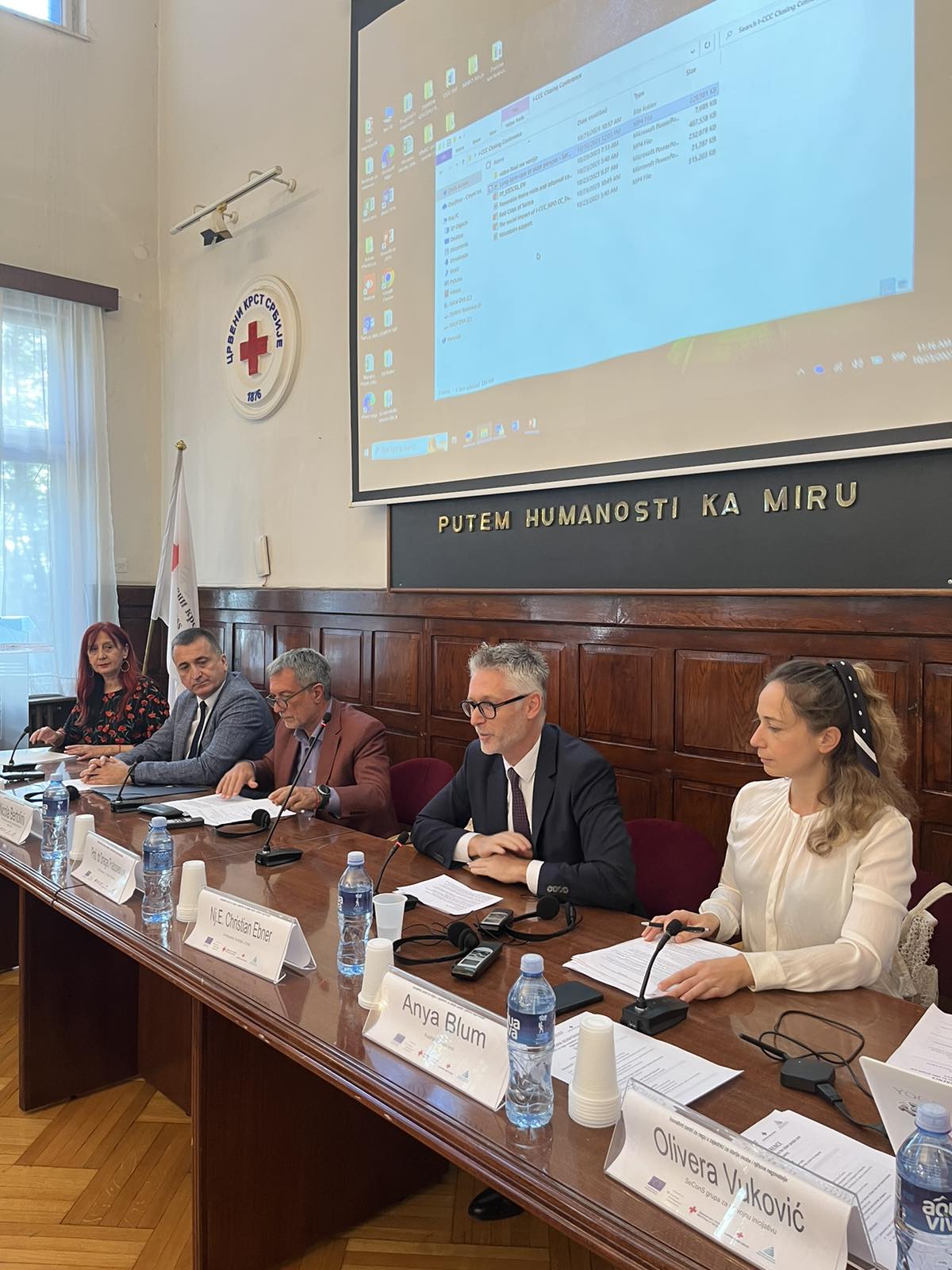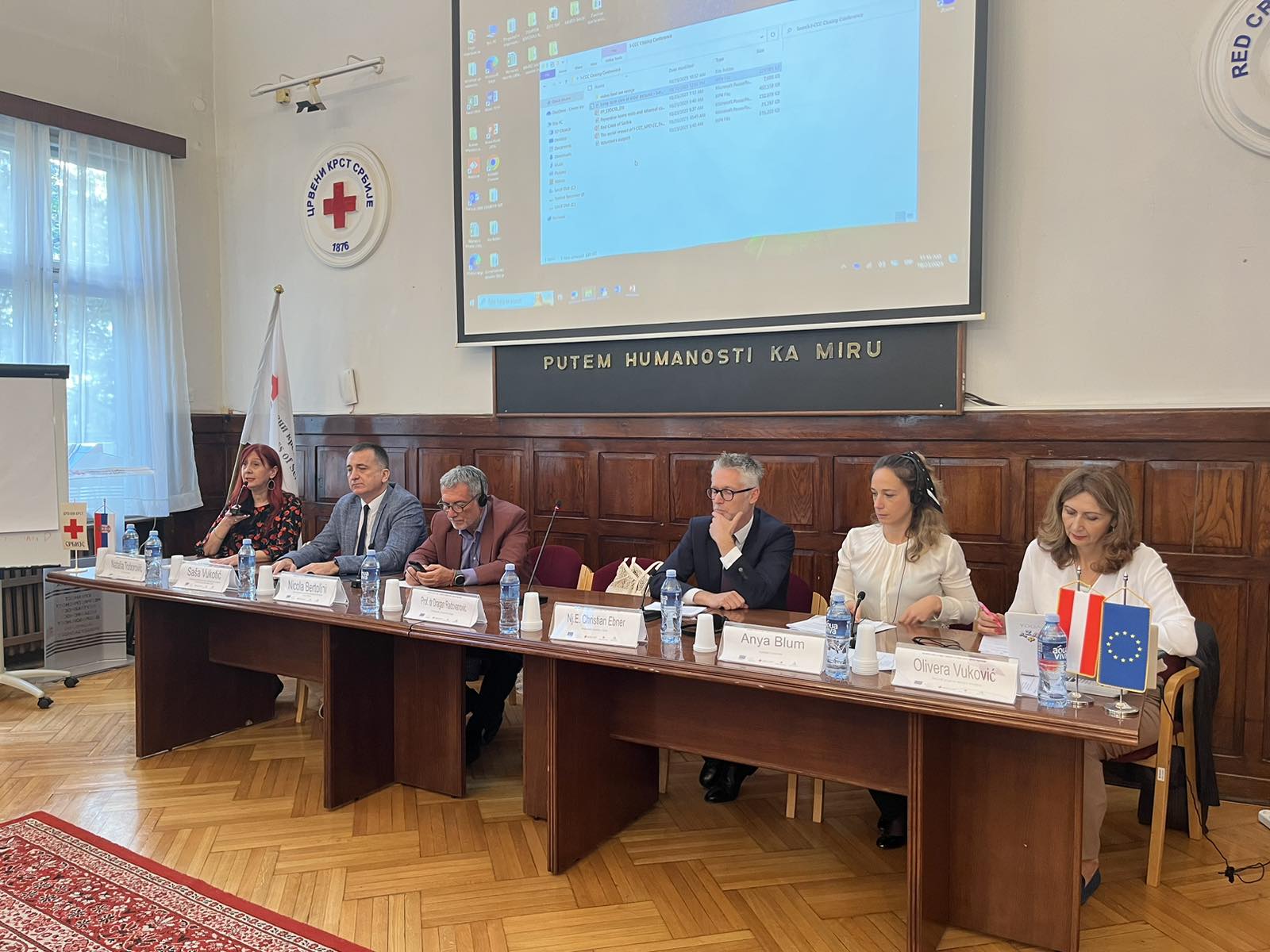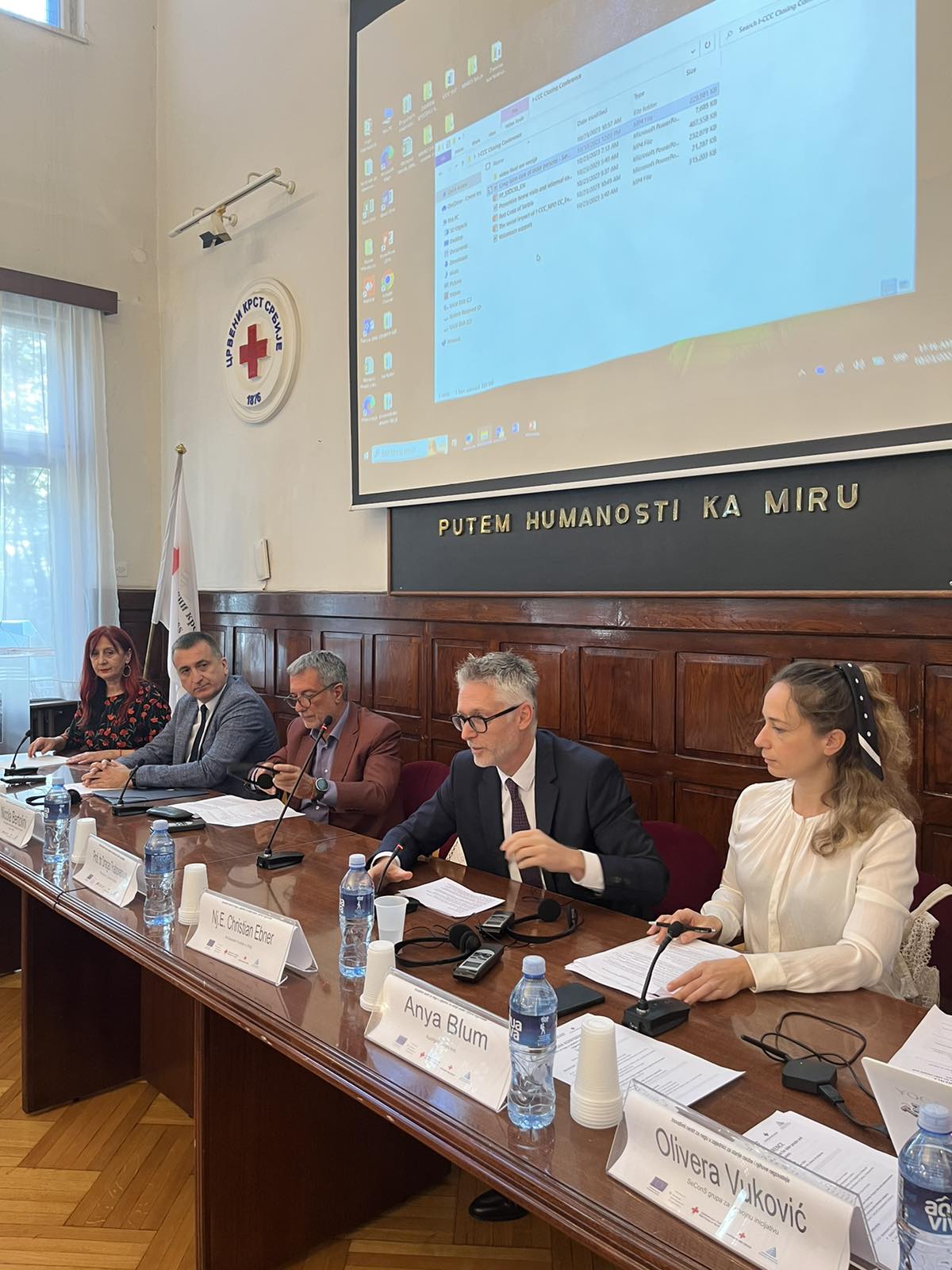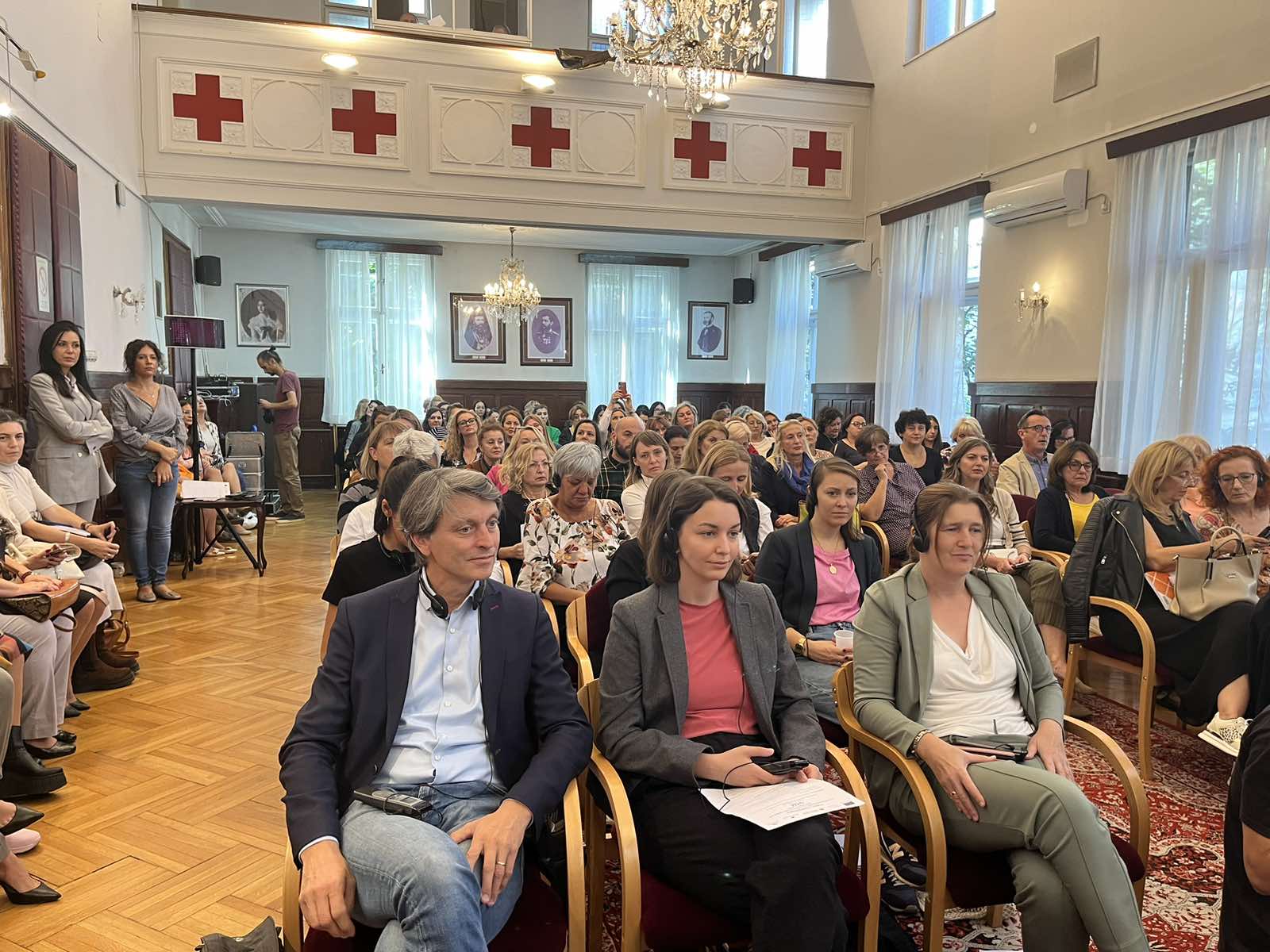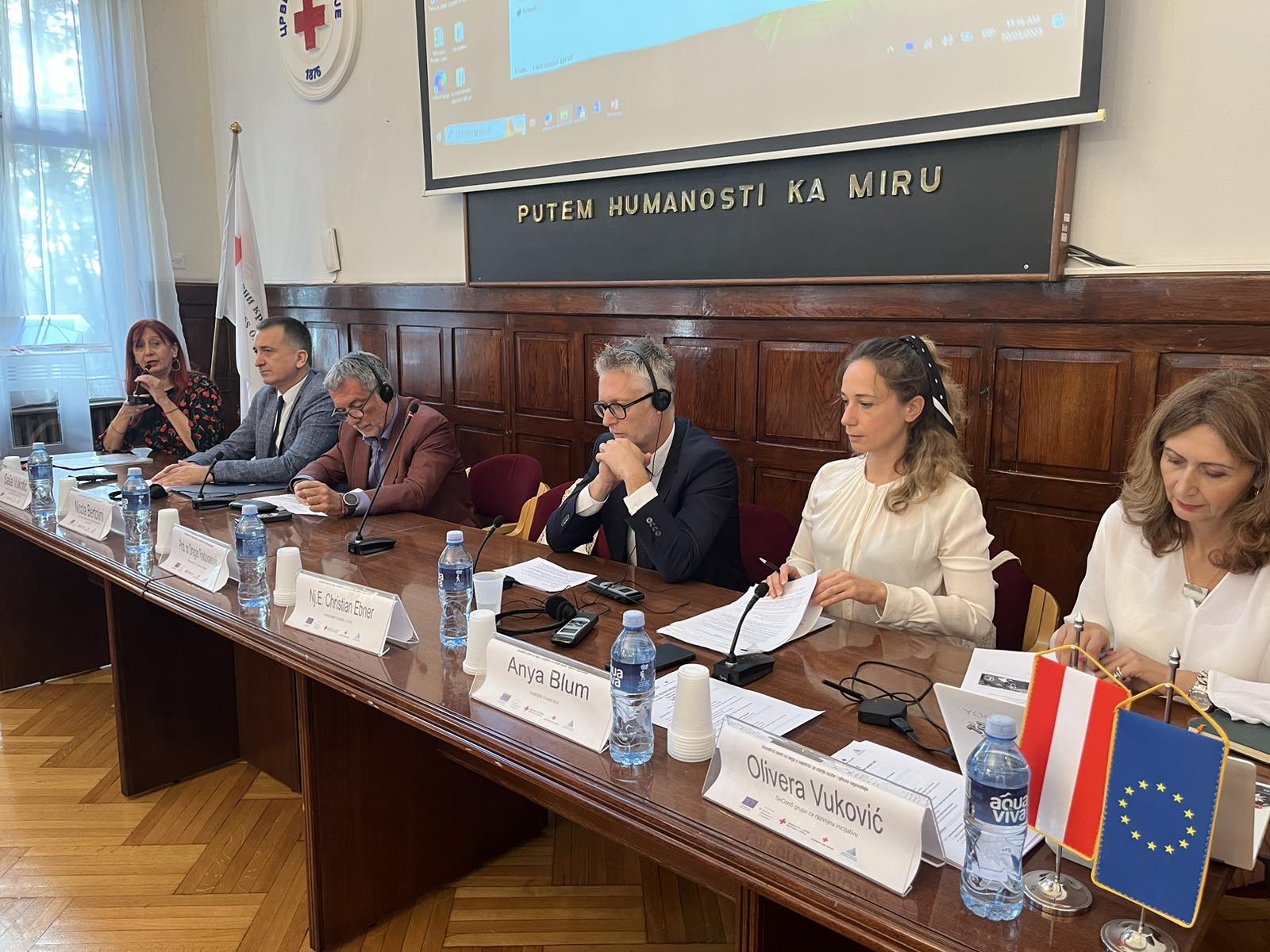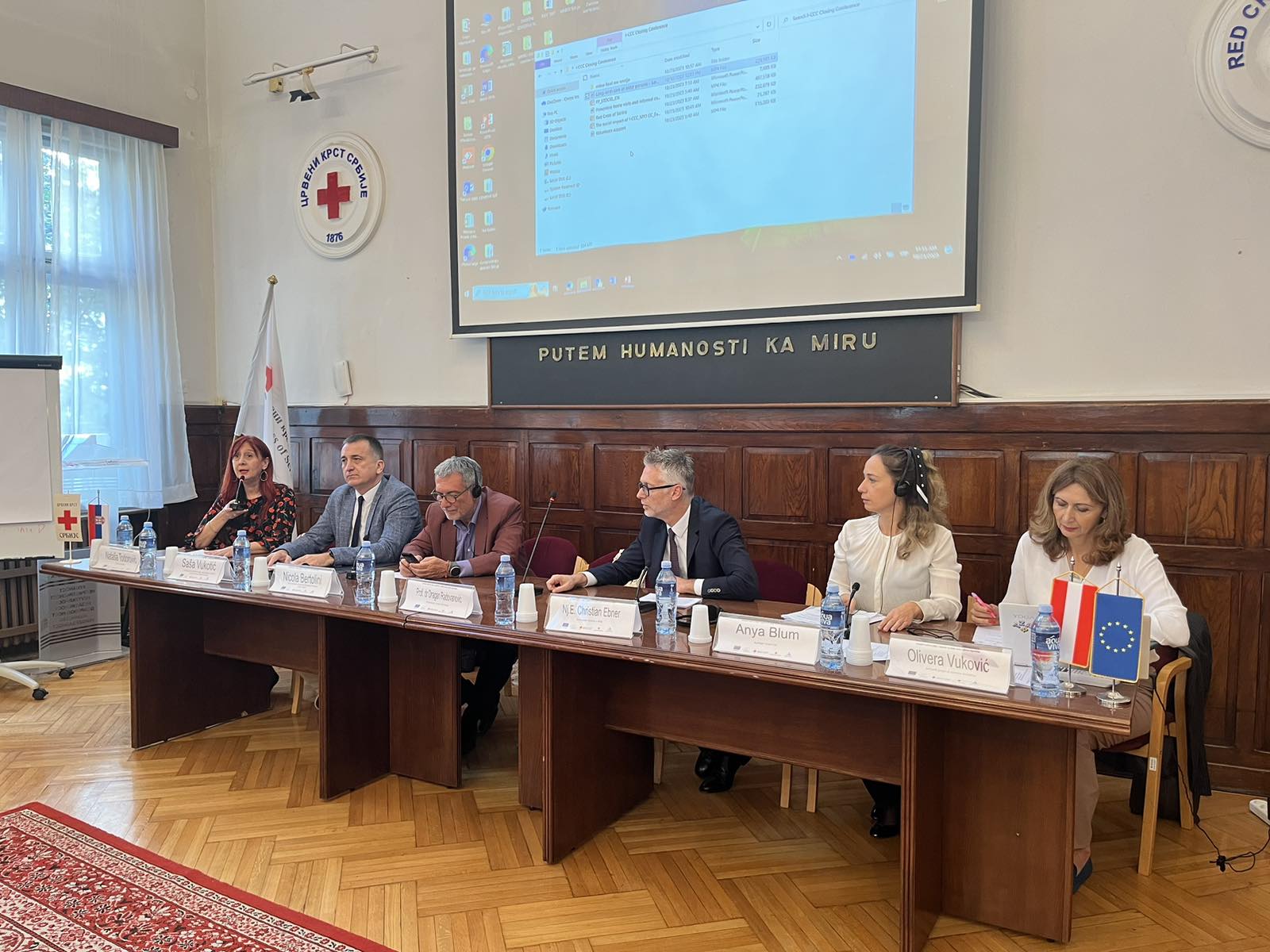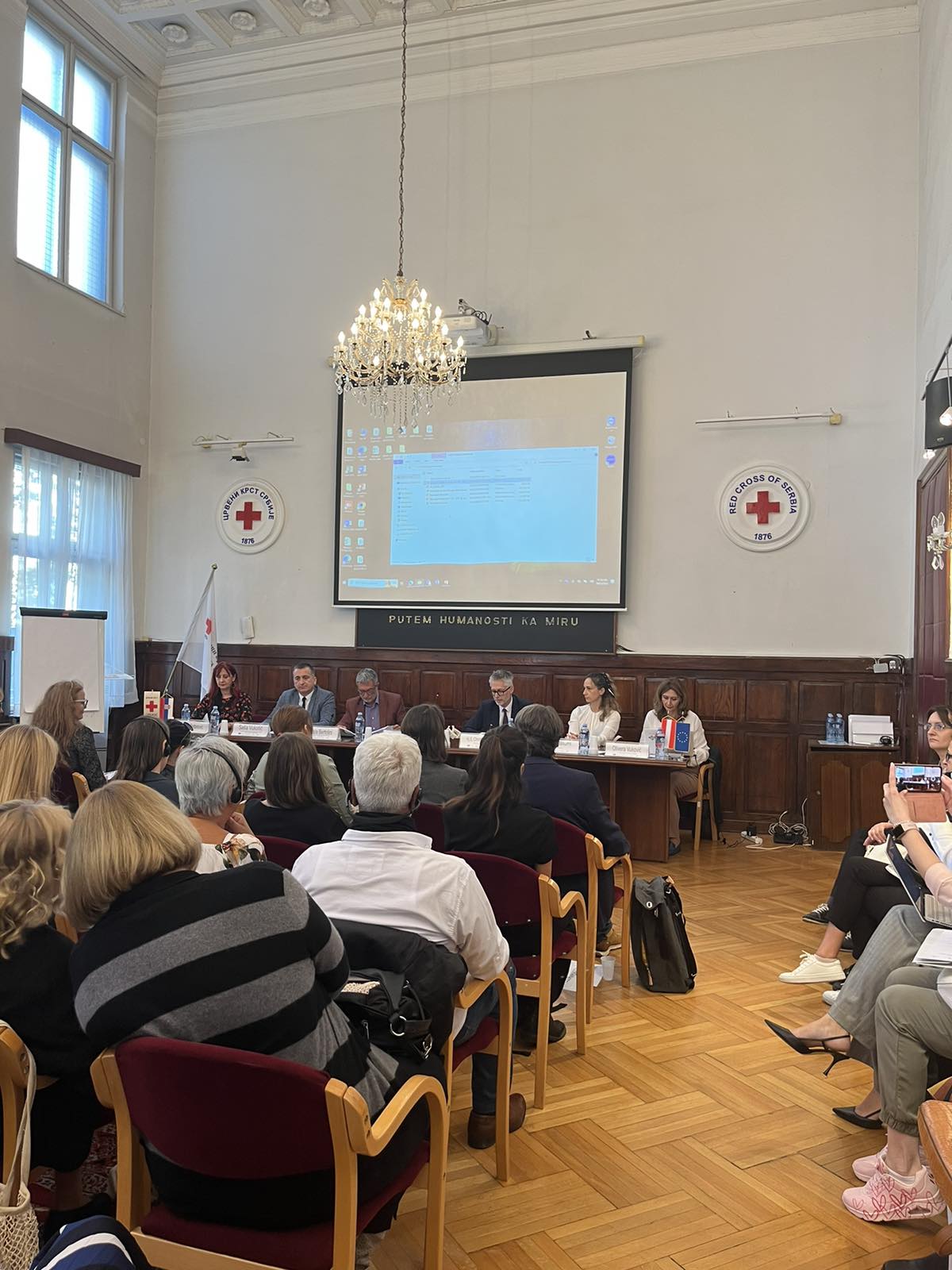- news
- final conference of the project “addressing and preventing care needs through innovative community care centres”
Final conference of the project “Addressing and Preventing Care Needs Through Innovative Community Care Centres”
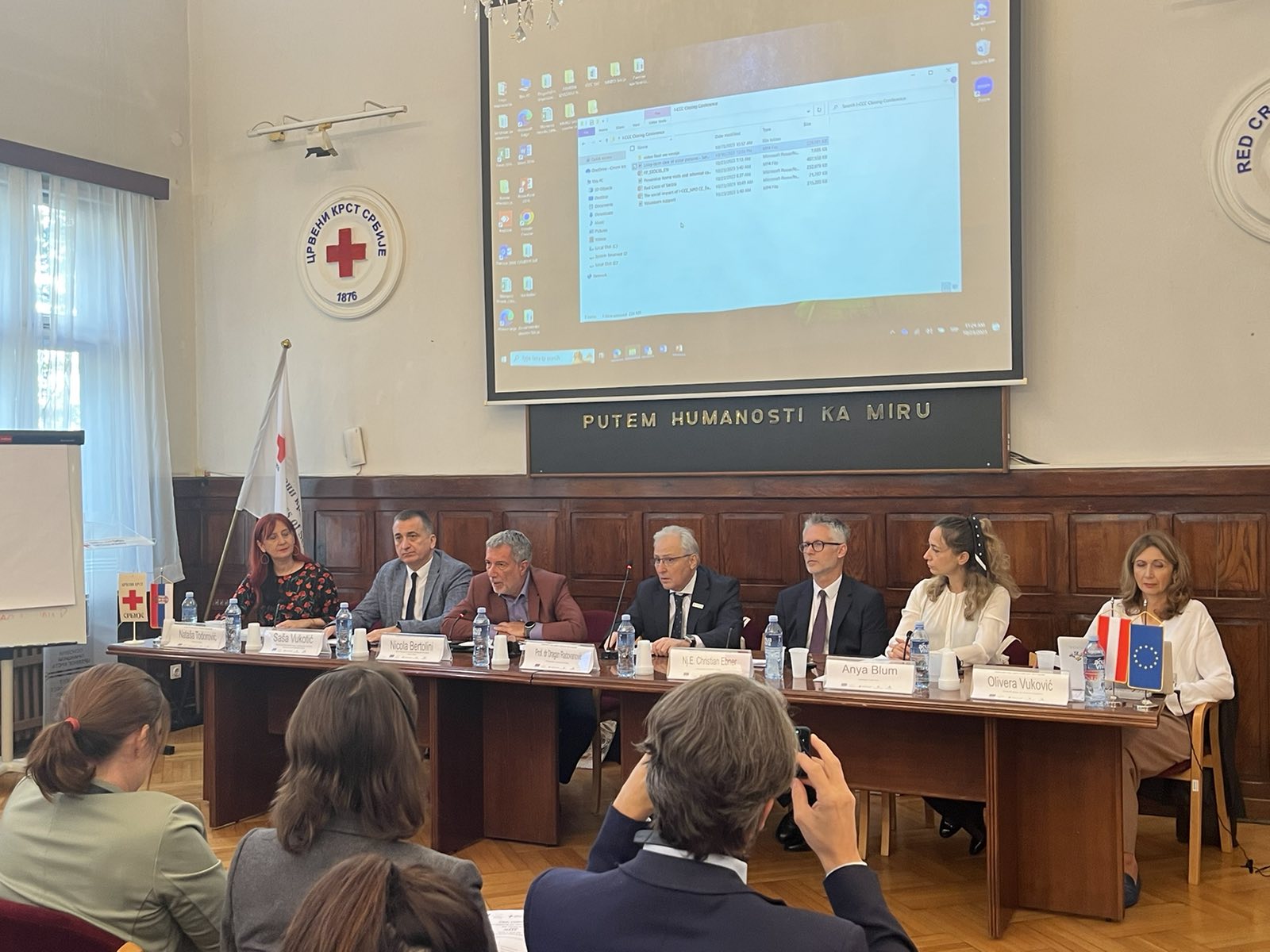
The conference of the project “Addressing and Preventing Care Needs Through Innovative Community Care Centres” was organized on 23 October 2023 at the Red Cross of Serbia in Belgrade. This international event gathered over 120 persons, representatives of the public sector, academia, civil sector, independent regulatory institutions as well as professionals who work with older persons.
The conference was organized as the final event in the project that the Red Cross of Serbia has been implementing since November 2020 in partnership with the Austrian Red Cross, the Red Cross of Montenegro, the Republic Institute for Social Protection, the Ministry of Health of the Republic of Montenegro and the Vienna University of Economics and Business, Competence Centre for non-profit organizations, with the support of the European Union and the Austrian Development Agency. The conference was organized as an announcement and part of the celebration of October 29, the International Day of Care and Support, which is observed for the first time in the world this year.
At the very opening of the conference, His Excellency Christian Ebner, Ambassador of Austria in Serbia spoke and emphasized the importance of continuous cooperation and support of the Austrian Development Agency in strengthening the capacities of the Red Cross and civil society organizations in Serbia. Demographic aging is a global phenomenon, it affects all societies, but its effects are particularly visible in the northern hemisphere, especially on the European continent. This, of course, requires strategic action and recognition of the threats and opportunities related to demographic change, which is how societies adapt to ageing. This also often requires innovative approaches in adapting services to the needs of the population, but also the use of modern technology in the service of care.
Nicola Bertolini, Head of the Cooperation of the Delegation of the European Union in Serbia, referred to the fact that the European Union, through various instruments, provides support to countries in the process of accession, and this includes support at the highest level in creating policies and harmonizing national legislation with EU standards, as well as support at the local level. The development and prosperity of local communities is very important in this regard, and one of the key elements of this support is the effort to make them as inclusive and fair as possible. It is also important to take care that these services are sustainable and recognized by the local community.
President of the Red Cross of Serbia, Prof. Dr. Dragan Radovanović pointed out that by the end of the century, more than 30% of the EU population will be over 65 years old. On the other hand, it is estimated that in the European Union approximately 100 million people provide informal care. During the COVID-19 pandemic, informal caregivers found themselves in an even more demanding role, they became a “dam of protection” and one of the pillars of the healthcare system and the social welfare system, however, although this was emphasized, informal caregivers still remain “invisible” from the point of view of the system, policy and support services worldwide.
Saša Vukotić, special advisor to the Minister of Labour, Employment, Veterans and Social Affairs of the Republic of Serbia, emphasized that projects such as this one are important and that they promote the availability of services, social inclusion and family solidarity. Aging has an important impact on the social protection system. Due to demographic aging, in the future, exactly these services will play a central role in the local community.
Anya Blum from the Austrian Red Cross said that older persons can be active members of society and that it also happens even in developed societies that older persons do not have access to long-term care services. Everyone has the right to affordable and quality care services.
Olivera Vuković from SeConS, presented the results of research on access to long-term care services in the Western Balkans region with a special emphasis on informal caregivers. Research has shown that informal caregivers are the backbone of care, with little or no support from society.
Nataša Todorović from the Red Cross of Serbia presented the project's achievements to the participants, referring to the activities and services in the local community: 60 people received respite services, 40 older persons had regular cognitive exercises on tablets, training cabinets were equipped for education of informal caregivers in two municipalities. Ivana Smolović from the Red Cross of Montenegro emphasized the importance of preventive visits to older persons, while Andrea Stöckl from Austrian Red Cross emphasized the importance of counseling services.
The project also had an evaluation presented by Maria Doppler, Christian Grünhaus from the Vienna University of Economics and Business, Competence Centre for Non-Profit Organizations, Sanja Miloradović and Slavica Milojević, from the Republic Institute for Social Protection and Lidija Brnović, Independent Consultant. The main result of the evaluation is certainly the fact that for older persons who had the opportunity to do cognitive exercises and spend time with volunteers, there is a positive impact of these activities on their general condition.
Three non-governmental organizations participated in the last session and presented their activities. Nadežda Satarić from the Serbian Association for Alzheimer's Disease spoke about the activities that are carried out in Belgrade, and are intended for people diagnosed with dementia and their families. Karolina Stamenković from “Lužničke rukotvorine-Ž.E.C.” from Babušnica, said that it is important to talk about older women who live in the countryside and whose access to services is difficult due to the lack of infrastructure. And finally, Ivica Durmišević, from the “Đurđevdan” NGO, from Bela Palanka, spoke about the older Roma persons and their needs. He pointed out that loneliness especially affects both physical and mental health.
The conclusion of the conference is that we need partnerships at all levels in order to improve the quality of life of both older persons and their families.
